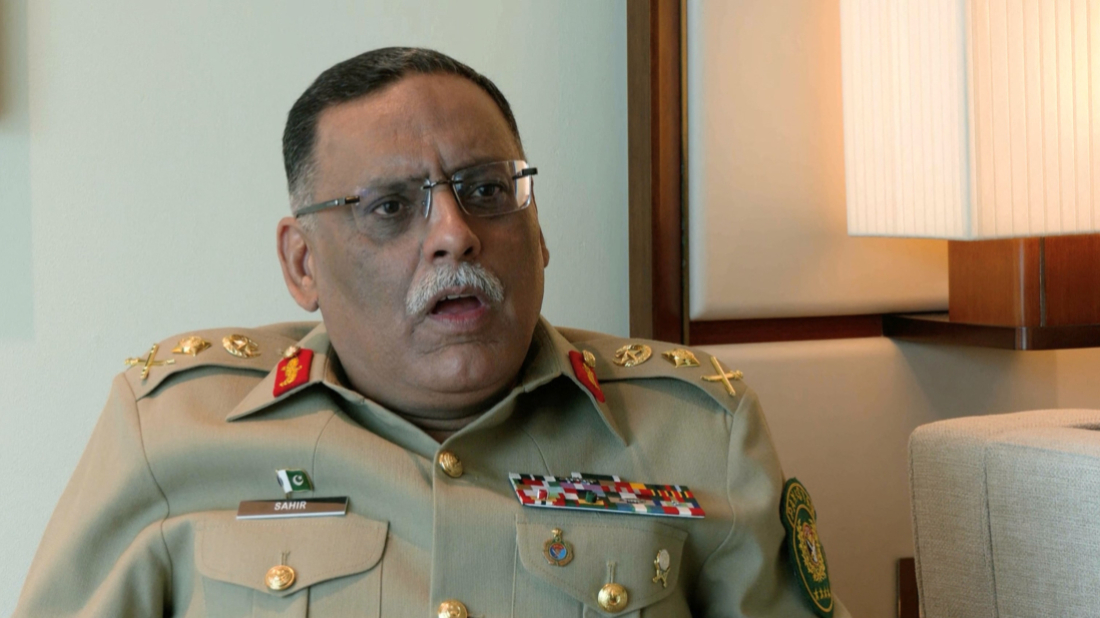Türkiye condemns Israel's West Bank land move as illegal under international law
Ankara has condemned an Israeli plan to register large areas of the occupied West Bank as state property, a move widely criticised internationally and...

akistan and India are close to completing a military de-escalation along their shared border, returning to troop levels seen before the April 22 Kashmir attack that triggered the worst fighting in decades between the two nuclear-armed neighbors, Pakistan’s top military official said on Friday.
Speaking to Reuters on the sidelines of the Shangri-La Dialogue security summit in Singapore, General Sahir Shamshad Mirza, Chairman of Pakistan’s Joint Chiefs of Staff Committee, said, “We have almost come back to the pre-22nd April situation... we are approaching that, or we must have approached that by now.”
The remarks mark the first public confirmation from Pakistan of a mutual troop reduction following the four-day conflict earlier this month, during which both countries used fighter jets, missiles, drones, and artillery in cross-border exchanges.
Crisis Origins and Escalation
The renewed hostilities erupted after a terrorist attack in Indian-administered Kashmir killed 26 people, most of them tourists. India blamed the assault on militants backed by Pakistan — an accusation Islamabad strongly denies.
In retaliation, India launched air and missile strikes on what it called “terrorist infrastructure” across the border. Pakistan responded with its own attacks, and both nations began building up forces along key points of the frontier.
Despite the intensity of the exchange, General Mirza said there was no movement toward nuclear escalation, though he cautioned that future crises could prove more dangerous. “You can't rule out any strategic miscalculation at any time,” he said.
A ‘Dangerous Trend’ Beyond Kashmir
Notably, the general warned that the latest conflict extended beyond the disputed territory of Kashmir, with both nations targeting mainland military installations. Though neither side acknowledged significant damage, the expansion of conflict zones represents a “very dangerous trend,” Mirza said.
“This lowers the threshold between two countries who are contiguous nuclear powers,” he noted. “In the future, it will not be restricted to the disputed territory... It would come down to the whole of India and the whole of Pakistan.”
Limited Communication, Risk of Delay in Mediation
While a ceasefire was achieved — reportedly helped by behind-the-scenes diplomacy involving the United States — Mirza expressed concern that future mediation efforts could be too late if another crisis erupts.
“The time window for the international community to intervene would now be very less,” he warned. “Damage and destruction may take place even before that time window is exploited.”
Pakistan remains open to dialogue, Mirza added, but stressed that beyond tactical-level hotlines and a crisis communication line between military operations directors, no backchannel or formal communication currently exists between the two countries.
India has repeatedly emphasized that “talks and terror don’t go together”, reaffirming its stance against formal dialogue unless Pakistan takes action against militant groups.
Mirza confirmed that he has no plans to meet India’s Chief of Defence Staff, General Anil Chauhan, who is also attending the Singapore forum. Still, he underscored the need for diplomacy: “These issues can only be resolved by dialogue and consultations on the table. They cannot be resolved on the battlefield.”
Looking Ahead
The developments come amid international calls for long-term de-escalation mechanisms between the two rivals. With both countries possessing nuclear capabilities and having fought three major wars, the potential for rapid escalation and global consequences remains a constant concern for regional and international observers.
Whether this latest crisis leads to renewed diplomatic channels or returns to the status quo remains to be seen. For now, both countries appear to be backing away from the brink — but not the underlying tensions.
U.S. Ambassador to NATO Matthew Whitaker said China has the power to bring an end to Russia’s war in Ukraine, arguing that Beijing is enabling Moscow’s military campaign.
Austria’s Janine Flock won the gold medal in the women’s skeleton event at the Milano-Cortina 2026 Winter Olympics on Saturday.
Iran’s Supreme National Security Council Secretary Ali Larijani said the United States could evaluate its own interests separately from those of Israel in ongoing negotiations between Tehran and Washington.
U.S. Secretary of State Marco Rubio on Sunday (15 February) called it “troubling” a report by five European allies blaming Russia for killing late Kremlin critic Alexei Navalny using a toxin from poison dart frogs.
Ukrainian President Volodymyr Zelenskyy said on Saturday that Russia’s decision to change the leadership of its delegation for upcoming peace talks in Geneva appeared to be an attempt to delay progress.
Ankara has condemned an Israeli plan to register large areas of the occupied West Bank as state property, a move widely criticised internationally and described by the UN and the International Court of Justice as inconsistent with international law governing occupied territories.
Kyrgyz President Sadyr Japarov has moved swiftly to consolidate his authority following the dismissal of his long-time ally Kamchybek Tashiev, head of the State Committee for National Security (SCNS).
Iran’s Foreign Minister Abbas Araghchi arrived in Geneva on Monday ahead of a second round of indirect nuclear talks with the United States, according to Iranian state media.
Azerbaijan and Serbia have formally launched a Strategic Partnership Council, marking a new phase in bilateral relations and placing cooperation under direct presidential oversight.
Iran’s Supreme National Security Council Secretary Ali Larijani said the United States could evaluate its own interests separately from those of Israel in ongoing negotiations between Tehran and Washington.
You can download the AnewZ application from Play Store and the App Store.

What is your opinion on this topic?
Leave the first comment